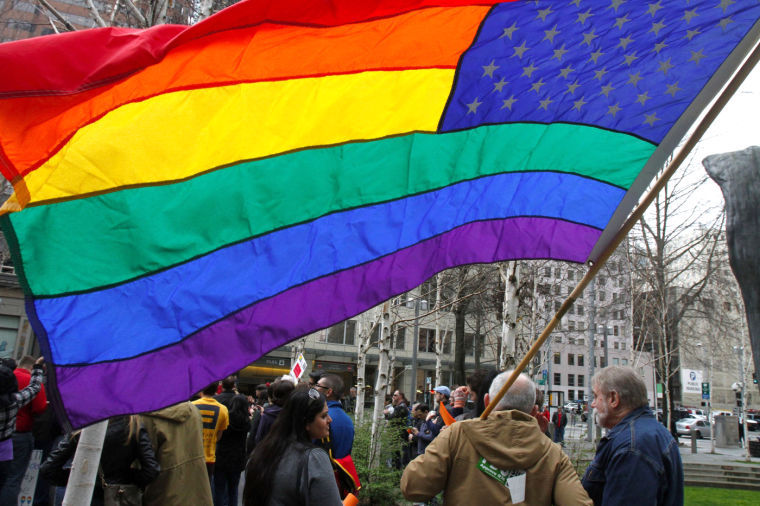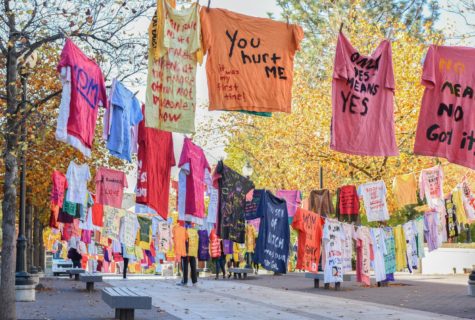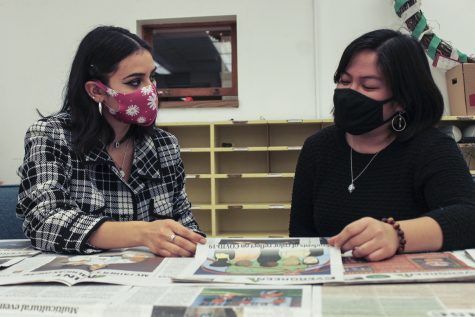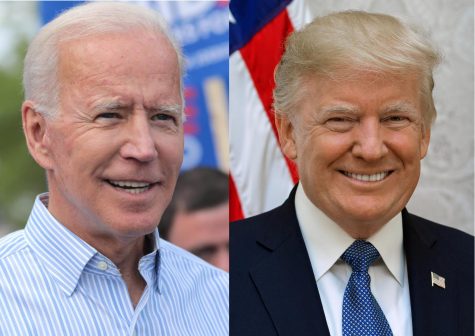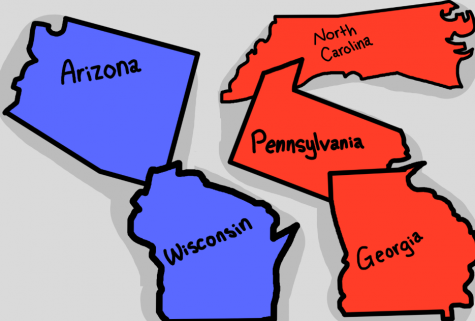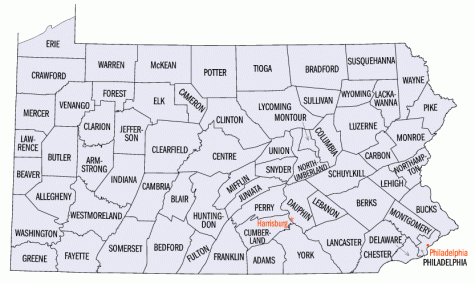Voters don’t trump people’s right; gay marriage is a constitutional liberty
May 21, 2014
We especially like our Constitution’s fourteenth amendment, the one that says no state shall deprive any person of life, liberty or property without due process of law. But apparently states like Idaho and Utah, where gay marriage remains illegal, feel otherwise.
Last week U.S. Chief Magistrate Judge Candy Dale overturned Idaho’s ban on same-sex marriage, calling it unconstitutional and arguing that such bans limit the freedoms of a minority by disproportionately placing power in the hands of a majority.
“Idaho’s marriage laws deny same-sex couples the economic, practical, emotional, and spiritual benefits of marriage, relegating each couple to a stigmatized, second-class status,” Dale wrote in her 57-page decision. “Plaintiffs suffer these injuries not because they are unqualified to marry, start a family, or grow old together, but because of who they are and whom they love.”
Surely this is something we all could agree with if it weren’t for people like Idaho Gov. C.L. “Butch” Otter, who responded – apparently with little hesitation – by requesting that no same-sex marriages be permitted before he could appeal Dale’s decision.
“In 2006, the people of Idaho exercised their fundamental right, reaffirming that marriage is the union of a man and a woman,” Otter said in a statement, failing to recognize that some Americans don’t fit into the mold of voter-defined marriage.
Otter was joined in his ignorance by Attorney General Lawrence Wasden, who helped file the request to the 9th Circuit Court of Appeals.
The two quickly got their way, and so the question remains whether Idaho will soon join the likes of Washington and California, where marriage is defined simply as two people who share the economic, practical, emotional, and spiritual benefits Dale mentioned.
Granted, voters have the right to deem same-sex relationships immoral by whatever standards they choose, but that right ends where obstruction of liberty begins.
To justify bans on same-sex marriage is to prove that unions among sexual minorities have any tangible and detrimental impact on other citizens, and we are yet to see that proof. It’s clear to us, however, that by adhering to traditional definitions of marriage, this nation severely limits gay people’s ability to care for their families and fulfill other societal responsibilities.
As the Idaho Press-Tribune reported, four Idaho couples challenged the ban last November with a lawsuit against the governor and Ada County Clerk Chris Rich. Among those couples were Sue Latta and Traci Ehlers, who married in 2008 in California, and Lori and Sharene Watsen, who married in 2011 in New York.
Both couples have children, and, according to the Press-Tribune, have said Idaho wrongly treats Ehlers as a legal stranger to her grandchildren. The state also has required Lori Watsen to obtain a new power of attorney every six months so she can have legal authority to consent to medical treatment for her son.
With troubles such as these in mind, we can only hope that more federal judges will follow in Dale’s footsteps as did district judges Michael McShane in Oregon and John E. Jones, III in Pennsylvania.
The fourteenth amendment exists for a reason, after all.
The Evergreen editorial board is comprised of Editor-in-chief Chad Sokol, Managing Editor Maia Gabriel, News Editor Matthew Brunstetter and Opinion Editor Josh Babcock.


